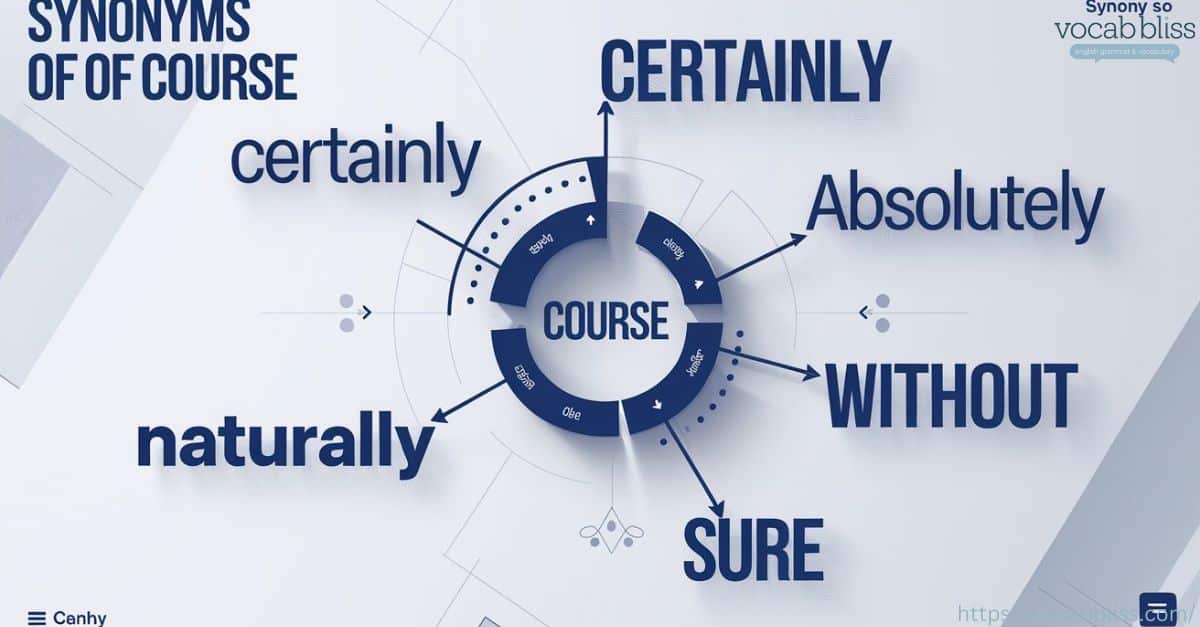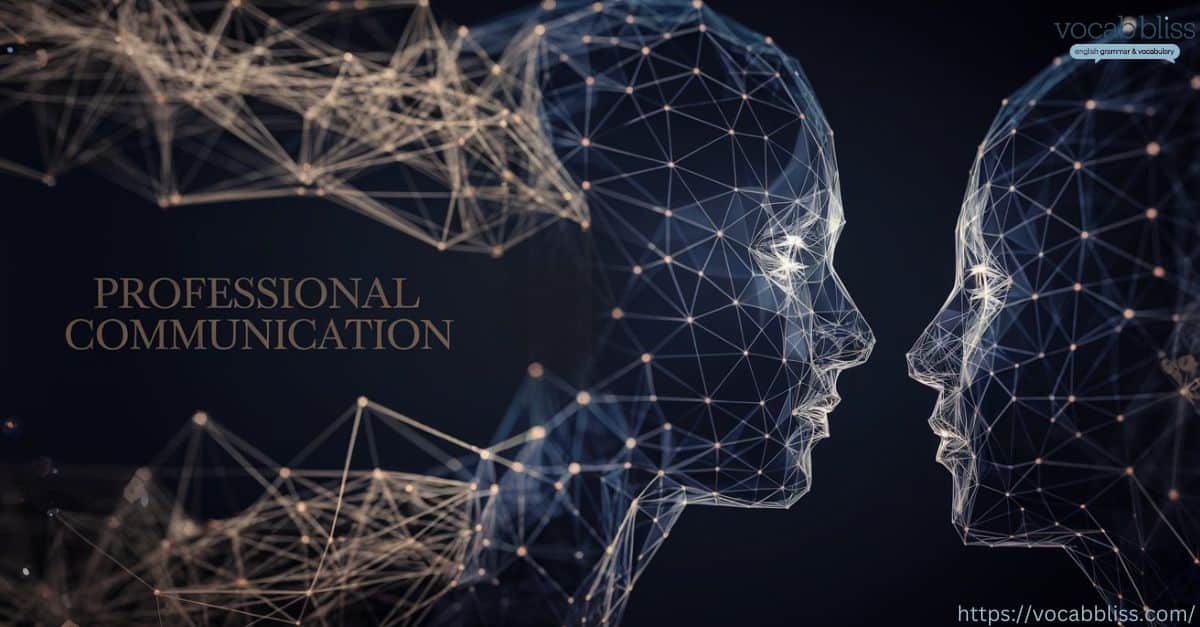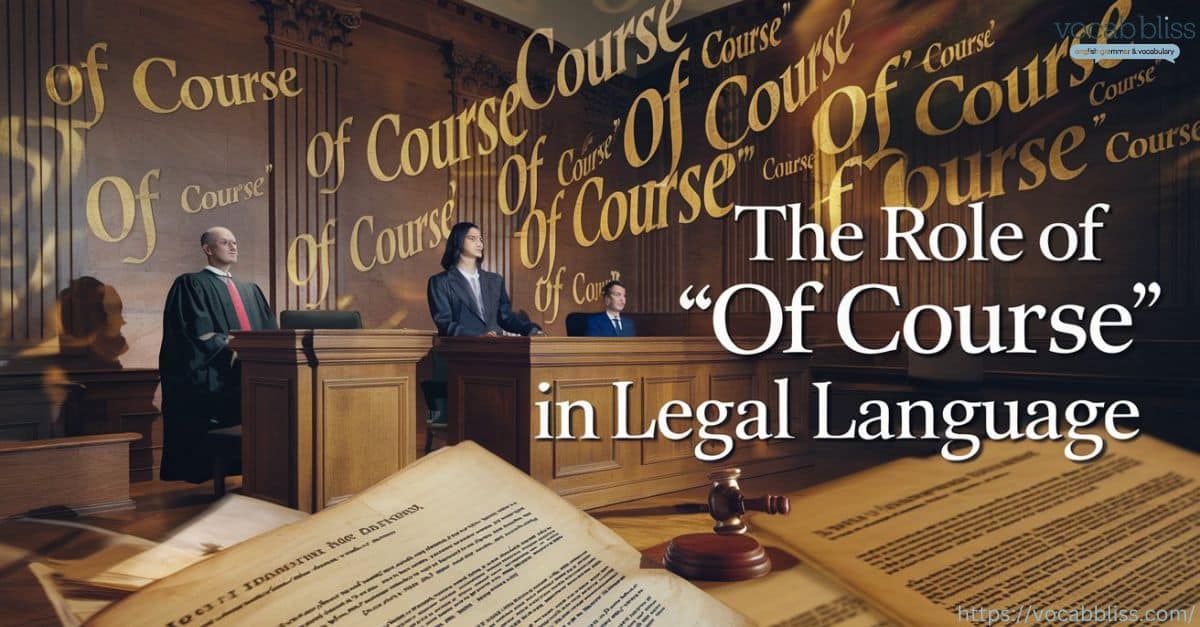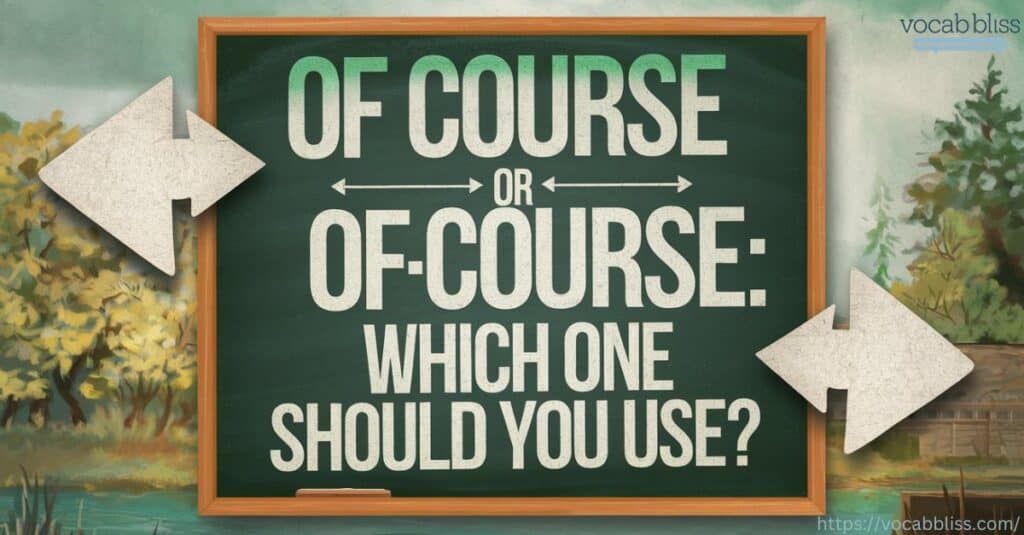TIn the English language, there are countless words and phrases that, at first glance, appear interchangeable but can differ significantly in usage, meaning, and spelling. One such case is the confusion between “of course or ofcourse.”
The subtle difference may seem trivial, but understanding when and how to use the correct form can improve the clarity, professionalism, and accuracy of your communication.In this article, we will explore the proper spelling, usage, and context of “of course,” debunk the common myth of “ofcourse” being acceptable, and offer expert insights into how to use the phrase correctly in various situations. Additionally, we’ll explore the history and origins of the phrase, synonyms and alternatives, and why using the correct form matters in different contexts.
Understanding the Confusion: ofcourse or of course
When it comes to phrases in English, clarity is everything. As language evolves, so do common phrases. What people might have considered an acceptable shorthand or informal expression years ago may no longer hold up under modern scrutiny—especially when they write it.The debate between “of course” and “ofcourse” highlights this trend.
At first glance, “ofcourse” seems like an innocent typo or a minor misspelling, yet it has become widespread in informal digital communication, such as texting, social media posts, and quick emails. The mistake might seem trivial, but here’s why it matters:
Standard English and Informal Usage

Using “ofcourse” in formal settings can give off the impression that the writer is careless or lacks attention to detail. In formal writing, accuracy is crucial, and phrases like “of course” should be used correctly to maintain a professional tone.
The use of Standard English in such contexts helps ensure that communication is clear, precise, and polished. On the other hand, Informal Usage allows for more flexibility and relaxed language, often used in casual settings where the focus is on quick communication rather than grammatical perfection.
Understanding when and where to use Standard English versus Informal Usage can significantly impact the perception of your message.
Here’s a chart to visually highlight the differences between Standard English and Informal Usage:
| Aspect | Standard English | Informal Usage |
|---|---|---|
| Tone | Formal, professional, and respectful | Casual, friendly, and conversational |
| Grammar | Adheres to all grammatical rules | More relaxed; may use slang and contractions |
| Vocabulary | Precise and formal language | Slang, idiomatic expressions, and simpler words |
| Punctuation | Correct and formal punctuation | Informal punctuation, like ellipses, dashes, or emojis |
| Context | Business communication, academic papers, formal emails | Texts, social media posts, casual emails or chats |
| Examples | “Please let me know if you need further clarification.” | “Let me know if you need anything!” |
| Audience | Professional audience, superiors, colleagues | Friends, family, or people in informal contexts |
This chart clarifies how Standard English is necessary in professional and formal contexts, while Informal Usage fits better in casual, day-to-day interactions.Choosing the right style ensures that your message reaches the audience appropriately and creates the correct impression, especially in professional or academic settings.
Preserving Clear Communication
In professional or academic communication, where your tone should reflect clarity and accuracy, the correct spelling and usage of common phrases signal your competence in the English language.
Mistakes like “ofcourse” can reduce your credibility or make your message seem less polished, which is especially problematic in environments where precision matters—like business, education, or professional correspondence.
⚡Quick Summary
A quick summary is a concise version of a larger text or idea, capturing the key points in a few sentences. It allows readers to understand the main concepts without reading the entire content. Effective summaries focus on clarity and brevity, highlighting important details while omitting unnecessary information. Whether summarizing an article, meeting, or presentation, a quick summary helps convey essential ideas quickly. It’s a valuable skill in both professional and casual communication, especially in settings like emails, reports, or social media. By mastering the art of summarizing, you improve your ability to communicate efficiently and effectively.
What Do “Of Course or Ofcourse” Mean?
To tackle the confusion, we first need to break down what both phrases mean. While “of course” is a widely accepted expression, “ofcourse” is not recognized as a correct form of the phrase. Let’s dive into the details.
“Of Course”
“Of course” is a phrase that expresses certainty, agreement, or polite permission. It is often used in everyday conversation and can take on different meanings depending on the context:
- Expressing Certainty: “Of course, I’ll be there on time.”
- Indicating Agreement: “Of course, I agree with your point.”
- Giving Polite Permission: “Of course, you can use my computer.”
- Expressing Something Obvious: “Of course, that’s how it works.”
In each case, “of course” is used to provide clarity and show a mutual understanding of a situation. It’s a polite affirmation, and when used correctly, it makes communication smoother and more natural.
“Ofcourse” – A Misspelling
On the other hand, “ofcourse” is simply a misspelling of “of course.” English is full of compound words, where two words combine into one, but “of course” is not one of them. The incorrect form of the phrase has crept into common usage due to digital communication (texts, social media, etc.), where people often accept shorthand and typos. However, in formal contexts, you must use the correct spelling.
The Spelling of Of Course”
The spelling of “of course” follows standard English rules. While English does have many compound words like “notebook” or “airplane,” some phrases like “of course” are open compounds and should remain separate. The space between the words is critical to maintaining their intended meaning and grammatical correctness.
Synonyms and Similar Phrases to “Of Course”

Now that we’ve established the meaning of “of course” and why “ofcourse” is incorrect, let’s explore some synonyms and similar phrases that can be used to convey a similar sense of certainty or agreement. Using varied language will not only enhance your writing but also help you avoid repetition.
Here are some common alternatives to “of course,” along with examples of when and how to use them:
| Phrase | Meaning/Usage | Example Sentence |
|---|---|---|
| Certainly | Expresses strong agreement or certainty, often used in formal settings. | “Certainly, I will have the report ready by tomorrow.” |
| Absolutely | A more emphatic form of agreement or certainty. | “Absolutely, that solution seems to be the best one.” |
| Naturally | Implies something is expected or obvious. | “Naturally, everyone is invited to the meeting.” |
| Sure | Casual affirmation or agreement. | “Sure, I can pick up the documents for you.” |
| Without a doubt | Strong assertion of certainty or agreement. | “Without a doubt, I will be at the event.” |
| Obviously | Indicates something is self-evident or clear. | “Obviously, you’ve worked hard on this project.” |
These alternatives allow you to express the same sentiment as “of course” while adding variety to your writing.
When and How to Use “Of Course”
“Of course” is a versatile phrase, but it’s important to know when and how to use it correctly. This will help you sound more professional and polished in both informal and formal contexts.
Correct Usage in Sentences
The most common uses of “of course” in everyday language include:
- Agreeing or Confirming: “Of course, I’ll handle that task for you.”
- Offering Permission: “Of course, you can borrow my book.”
- Expressing Certainty: “Of course, I can attend the meeting.”
- Polite Refusals: “Of course, I understand your concerns.”
Here’s a breakdown of when to use “of course” in different contexts:
- Casual Conversations: It’s perfect for agreeing to something or confirming a situation in an informal conversation. Example: “Of course, I’ll meet you at the park later.”
- Business or Professional Writing: It can be used to express certainty in professional communication, such as emails or meetings. Example: “Of course, we can discuss the details in the next meeting.”
- Polite Requests: Use it when responding to polite requests, especially if you want to show eagerness or willingness. Example: “Of course, feel free to reach out if you need help with the project.”
How Not to Use “Of Course”
While “of course” is a handy phrase, there are times when it might not be appropriate:
- Overuse: Repeating the phrase too often can make your writing or speech sound redundant. Mix up your vocabulary to avoid this.
- Overconfidence: In certain contexts, saying “of course” might sound presumptive. For example, if someone asks for a clarification or makes a suggestion, responding with “of course” might come across as condescending if not used carefully.
- In Formal Legal Writing: Avoid using “of course” in highly formal documents or legal writing, where more precise, neutral language is preferred.
Examples of “Of Course” in Sentences
To better understand the correct usage of “of course,” let’s explore more examples across different contexts:
Everyday Conversations

- Friend: “Can you pick up my dry cleaning?”
- You: “Of course, no problem!”
- Friend: “Do you think we’ll finish the project on time?”
- You: “Of course, we’re ahead of schedule.”
Professional Communication

- Boss: “Can you attend the meeting at 3 p.m.?”
- You: “Of course, I’ll be there.”
- Client: “Can you send the updated report by Friday?”
- You: “Of course, I’ll have it to you by then.”
The Origins of “Of Course”
Understanding where a phrase comes from can offer valuable insights into its usage and evolution. The phrase “of course” has a rich history that goes beyond its modern use in everyday speech.
- Latin Origins: The word “course” comes from the Latin “cursus,” meaning “path” or “course,” which evolved over centuries into its present form. The phrase “of course” likely evolved in the 16th century, when English speakers began using it to describe something that was expected or obvious.
- The Role of “Of Course” in Legal Language: The phrase also has roots in legal English, where “course” referred to a standard procedure. This gave the phrase additional gravitas and authority, making it a phrase for certainties, agreements, and statements of fact.

The Grammar Behind “Of Course vs Ofcourse”
When you’re writing, especially for professional purposes, getting the grammar right is essential. The distinction between “of course” and “ofcourse” is a prime example of the importance of adhering to grammar rules.
Why “Ofcourse” is Incorrect
“Ofcourse spelling” is an incorrect. because it combines two distinct words that should remain separate. In English, specific patterns form compound words, and “of course” follows the rule of being an open compound, which means the two words should stay separate.
If you’re ever unsure about whether a compound word should be joined together, check it against a reliable dictionary. If the dictionary lists it as two separate words, it’s likely you should keep them apart.
Conclusion
In summary, you should use “of course” as the correct spelling and avoid “ofcourse,” as it is a misspelling, especially in professional writing. Understanding when to use “of course” correctly ensures your communication is clear, professional, and accurate. Whether you’re in casual conversation or drafting a business email, correct usage reflects your command of the English language and your attention to detail.
Always remember that language is a powerful tool, and the more precise you are with your words, the more polished and effective your communication will be. So, next time you want to express agreement or certainty, opt for “of course”—it’s the clear choice.






